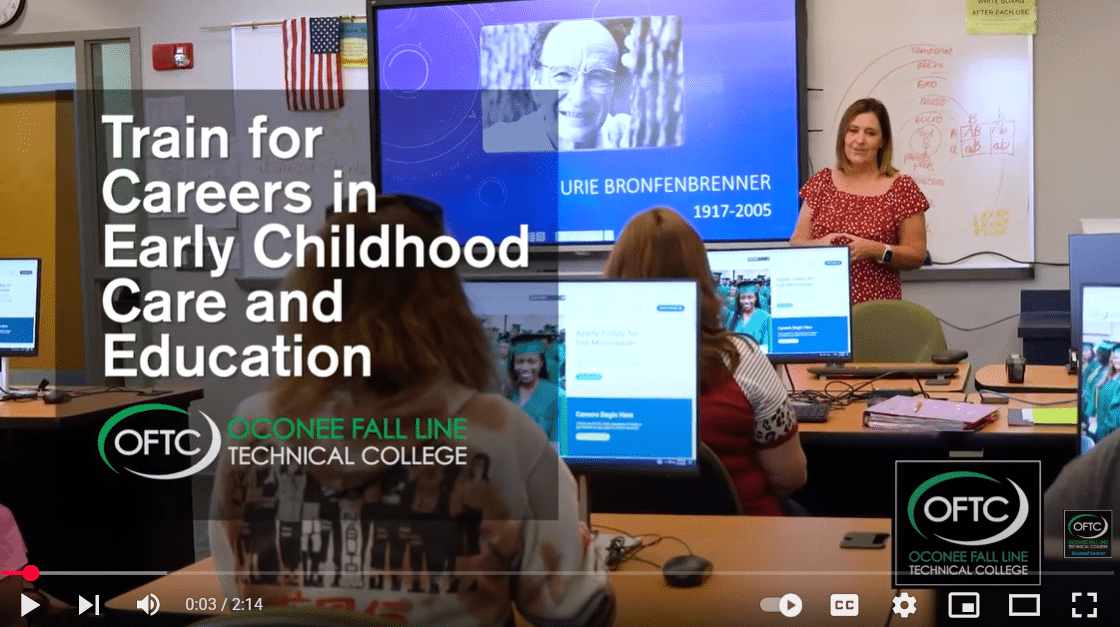Early Childhood Care & Education
settingsWhen working with small children, work is never routine. With new activities and challenges, every day has the potential to be a new learning experience.
Overview
OFTC’s Early Childhood Care and Education program prepares students for meaningful careers shaping the minds of young children. Students can earn an entry-level certificate—required for all daycare workers in Georgia—and continue their education toward a diploma or associate degree.
Through guided instruction, students learn to develop and implement lesson plans and gain a strong understanding of Georgia Early Learning and Development Standards (GELDS) and the Georgia Standards of Excellence (GSE), which form the foundation for instruction in daycares, pre-K, and elementary classrooms.
Best of all, this program uses Open Educational Resources (OER), so students have no textbook costs—saving money while gaining a quality education.
Programs in Early Childhood Care and Education can be completed in as little as 1 to 5 semesters.
Programs
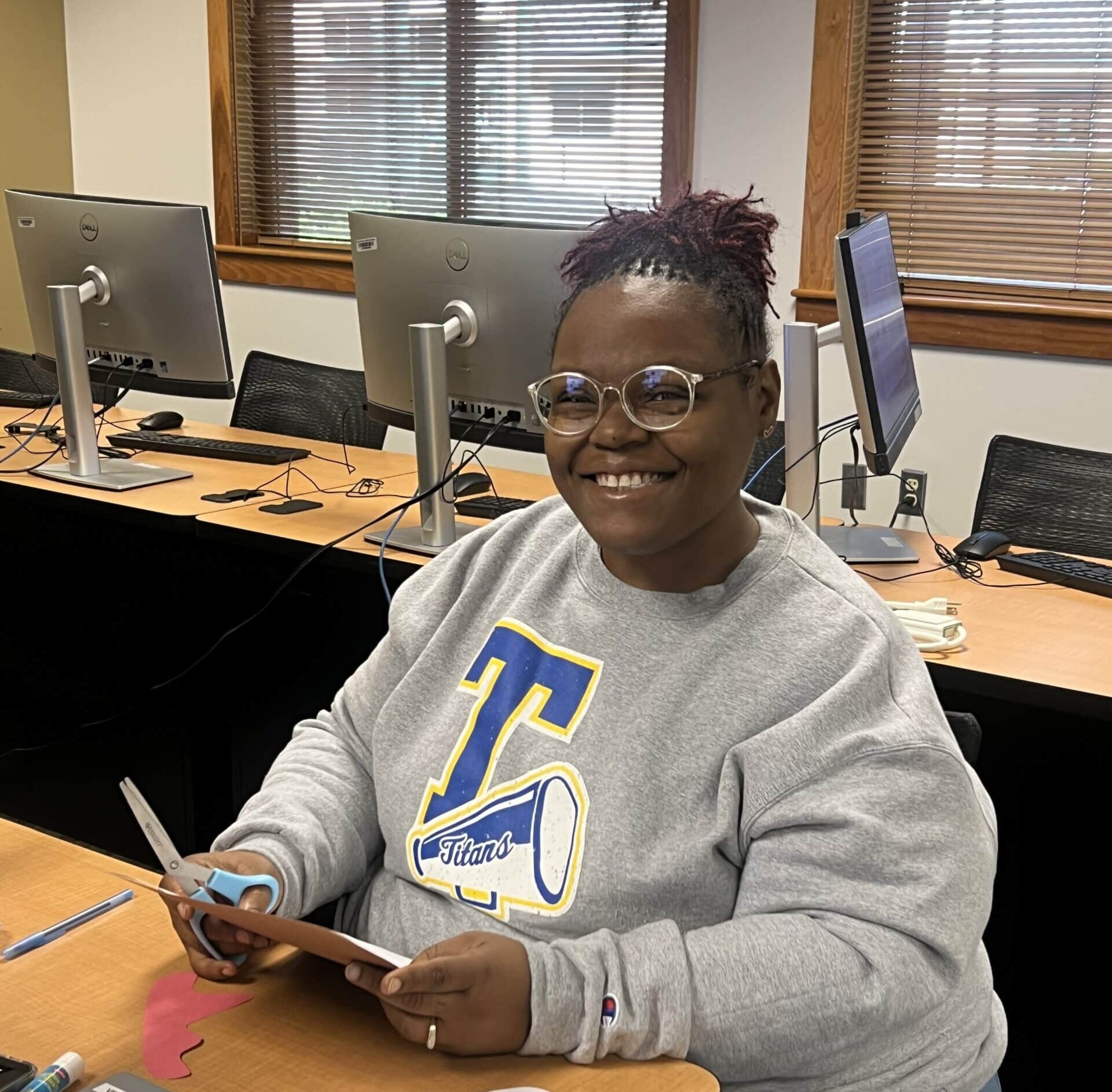
Child Development Specialist Technical Certificate of Credit
Early Childhood Care and Education
Certificate of Credit
2 Semesters
The Child Development Specialist technical certificate of credit program is a sequence of five courses designed to prepare students for a variety of careers in the field of early childhood education. The program emphasizes the basics needed for a career in early childhood, but this TCC also includes more content about planning curriculum and working in the field. In addition, the student may complete a practicum and work in a child care program. Graduates have qualifications to be employed in early care and education settings including child care centers, Pre-K programs and Head Start.
The HOPE Career Grant is available to HOPE Grant-qualified students who enroll in select majors specifically aligned with industries in which there are more jobs available in Georgia than there are skilled workers to fill them. Learn More
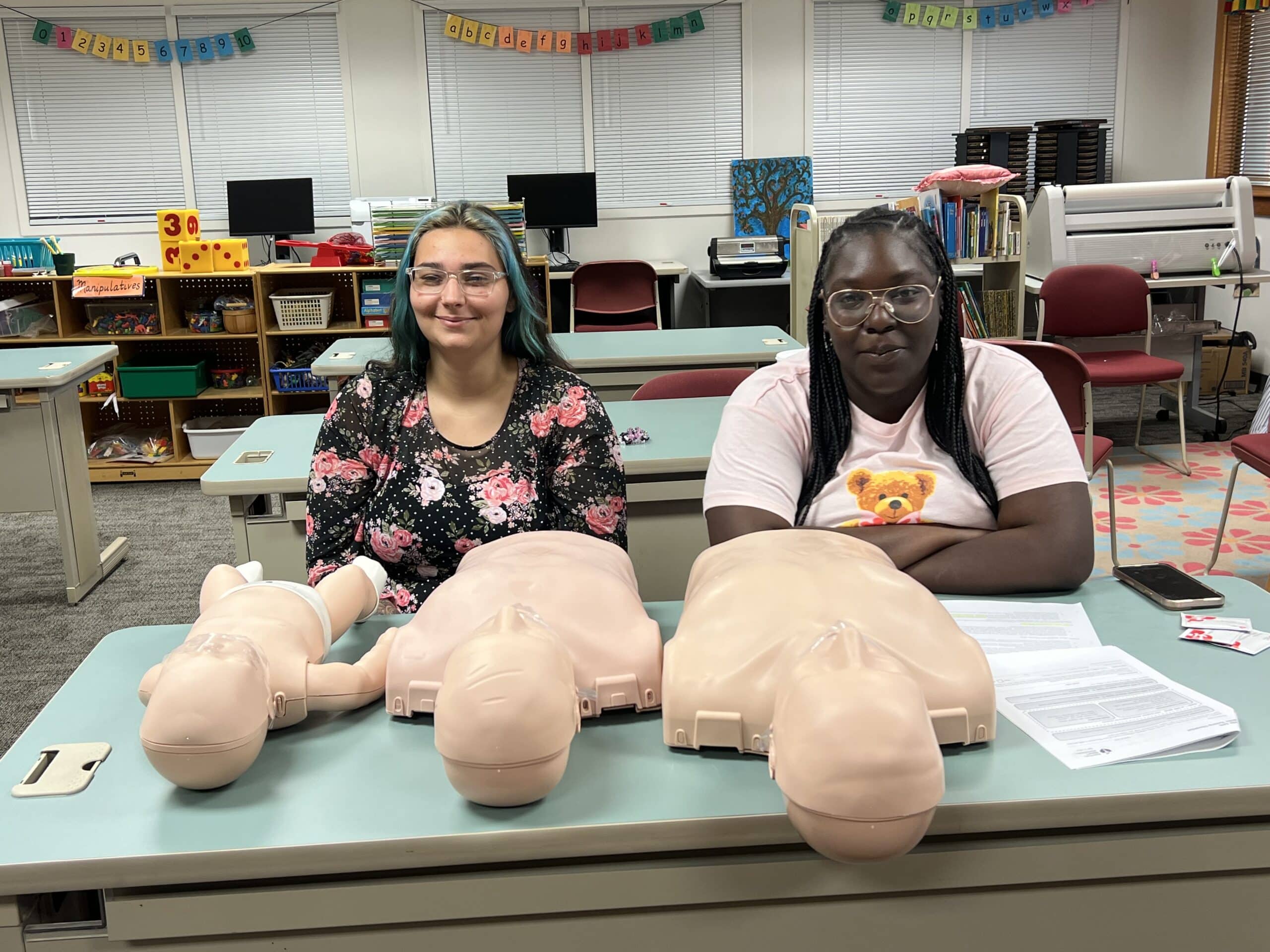
Early Childhood Care and Education Associate of Applied Science Degree
Early Childhood Care and Education
Associate of Applied Science Degree
5 Semesters
The Early Childhood Care and Education associate of applied science degree program is a sequence of courses designed to prepare students for a variety of careers in the field of early childhood education. The program emphasizes a combination of early childhood care and education theory and practical application as well as general core competencies necessary for successful employment. Graduates of this program will receive one of two areas of specialization: exceptionalities or paraprofessional.
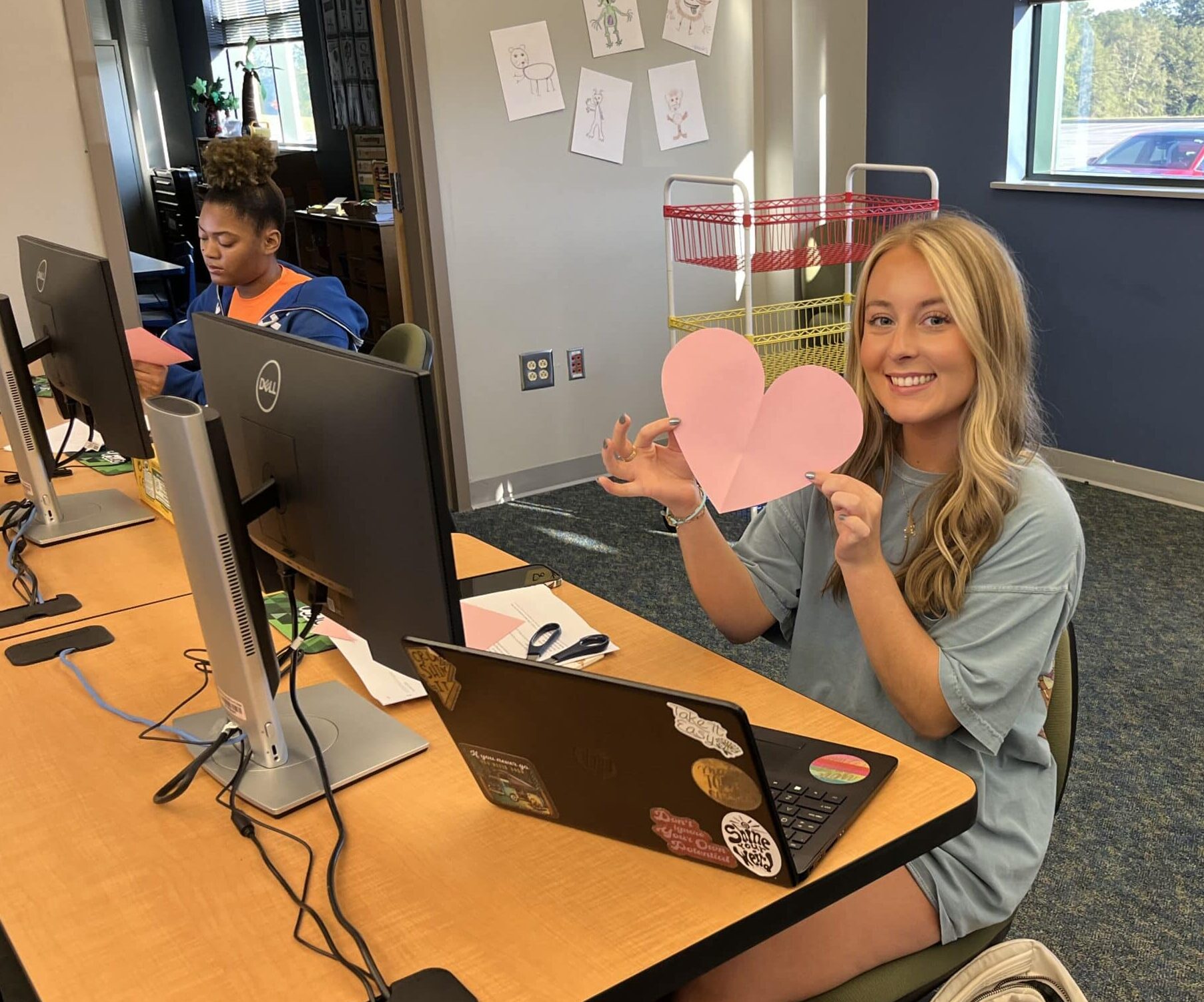
Early Childhood Care and Education Basics Technical Certificate of Credit
Early Childhood Care and Education
Certificate of Credit
1 Semester
The Early Childhood Care and Education (ECCE) Basics technical certificate of credit program includes three basic Early Childhood and Care Education courses that are needed for entry level workers. The program provides an introductory course to the ECCE field, a child growth and development course, and a health, safety, and nutrition course. Graduates have qualifications to be employed in early care and education settings including child care centers, Head Start, and Georgia Pre-K programs. Bright from the Start (BFTS), the regulatory agency in Georgia, requires the basic knowledge included in this TCC for a person to be employed in a child care center or family day care center.
The HOPE Career Grant is available to HOPE Grant-qualified students who enroll in select majors specifically aligned with industries in which there are more jobs available in Georgia than there are skilled workers to fill them. Learn More
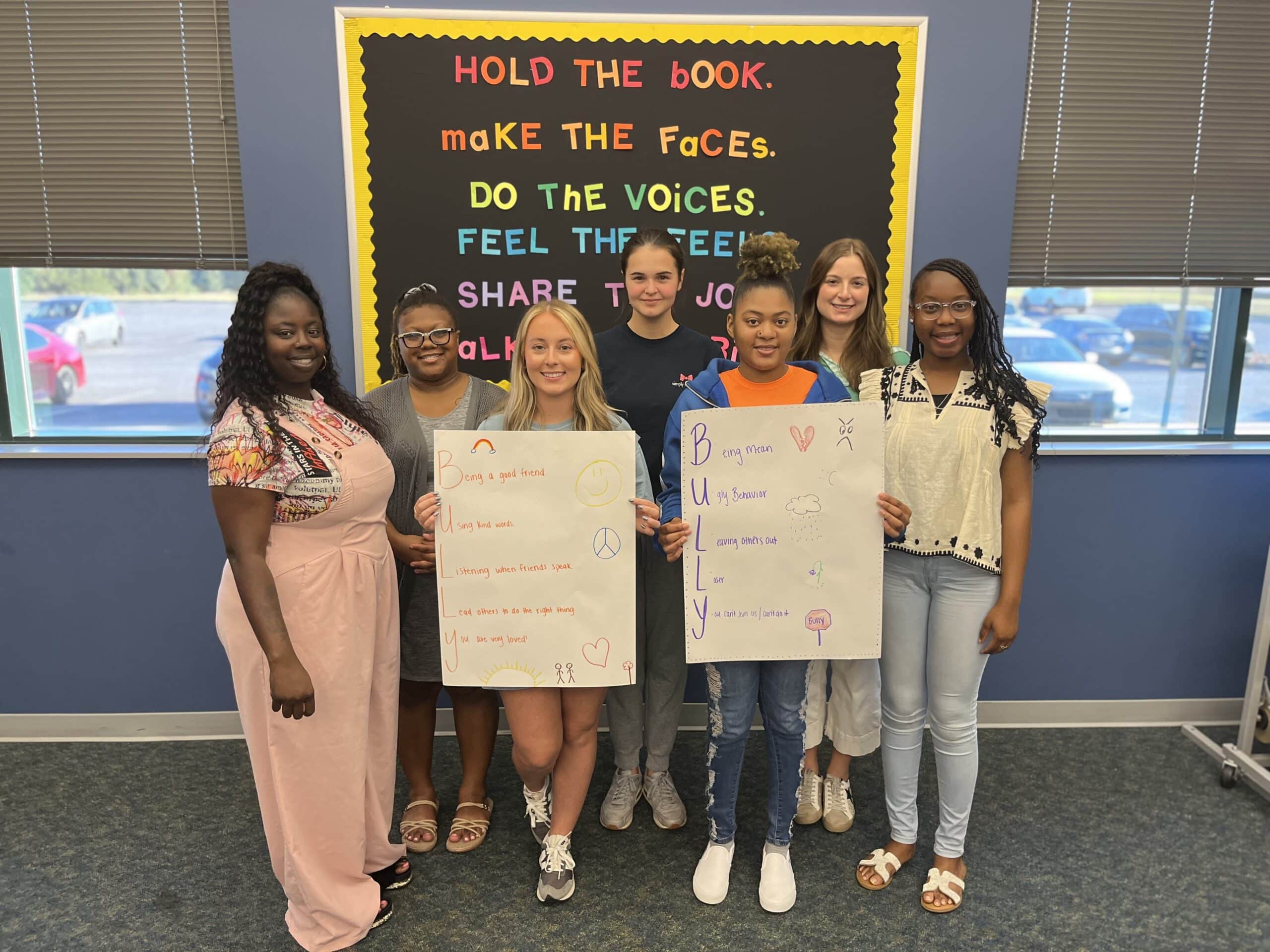
Early Childhood Care and Education Diploma
Early Childhood Care and Education
Diploma
4 Semesters
The Early Childhood Care and Education diploma program is a sequence of courses designed to prepare students for a variety of careers in the field of early childhood education. The program emphasizes a combination of early childhood care and education theory and practical application as well as general core competencies necessary for successful employment. Graduates have qualifications to be employed in early childhood care and education settings including child care centers, Head Start and Georgia Pre-K programs.
The HOPE Career Grant is available to HOPE Grant-qualified students who enroll in select majors specifically aligned with industries in which there are more jobs available in Georgia than there are skilled workers to fill them. Learn More
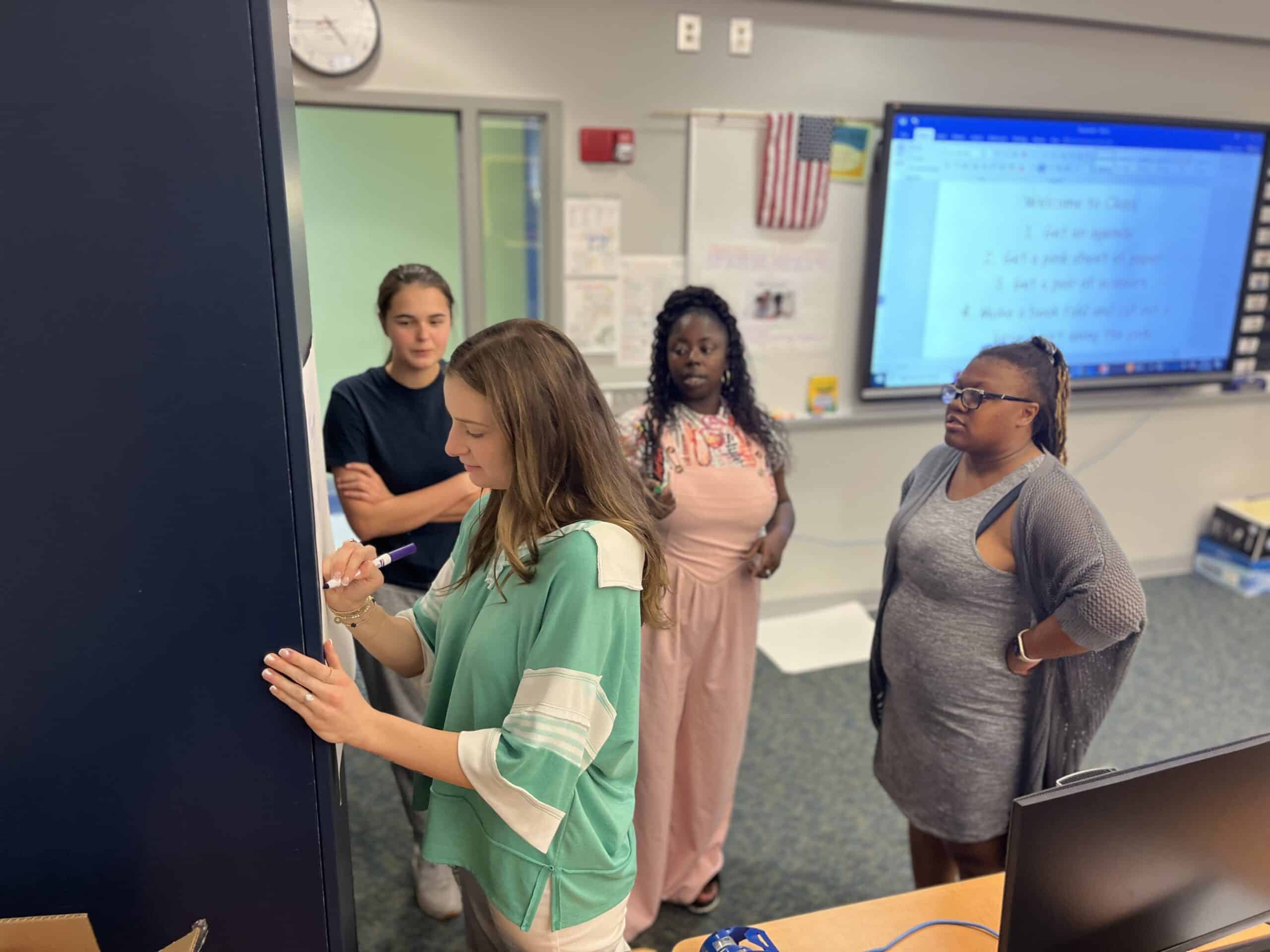
Early Childhood Exceptionalities Technical Certificate of Credit
Early Childhood Care and Education
Certificate of Credit
1 Semester
The Early Childhood Exceptionalities technical certificate of credit program is a sequence of three courses designed to prepare students to work with children with special needs. The program emphasizes an inclusive classroom including strategies and activities for exceptional children (both low and high achieving students). Graduates have qualifications to be employed in early care and education settings including child care centers, Head Start, Georgia Pre-K programs, and primary schools.
The HOPE Career Grant is available to HOPE Grant-qualified students who enroll in select majors specifically aligned with industries in which there are more jobs available in Georgia than there are skilled workers to fill them. Learn More
Features
Job Stability & Security
Employment of preschool teachers is projected to grow 4% through 2033, much faster than the average for all occupations.
Little or No Cost to You
With the Pell Grant, Georgia’s HOPE Grant, HOPE Scholarship, and HOPE Career Grant (for students/programs who qualify) and other scholarship opportunities, many students graduate OFTC with little to no debt.
Tuition & Fees
With tuition at $107 per credit hour, total costs for Early Childhood Care and Education department programs range from:
- Tuition & Fees*: $1,231.00 – $7,093.00
- Books & Supplies*: $3,000.00
*Visit the OFTC Catalog to view each individual program and its full breakdown of tuition, fees, books, and supplies. Costs are estimated and are subject to change.
Advancement Opportunities
Certification is one way to move up to advanced positions within the early childhood career field. Additional skills, certifications or degrees in management, education, psychology and other specialties can also help advance your career opportunities!
Locations
Oconee Fall Line Technical College has campuses throughout its 11-county service area. We look forward to your visit.
Online
Admissions
Our application process takes just a few minutes to complete, but we want to make sure you have the things you’ll need on hand to complete the application. We’re here to help if you have any questions!
Admissions Process
Your admissions application can be submitted online with your $25.00 non-refundable application fee and takes just a few minutes to complete.
- Submit a completed application and application fee.
- Submit official high school transcript, GED transcript, or official college transcripts, if applicable.
- Submit official entrance score on a validated assessment instrument, if applicable. Visit the OFTC Catalog Program Page to view each individual program and its required minimum scores.
- Complete the FAFSA (Free Application for Federal Student Aid) and HOPE applications online using OFTC School Code: 031555.
NOTE: The College may accept transfer credit for other courses according to the College’s transfer policy.
General Requirements
Be at least 16 years of age.
Additional admissions requirements unique to each program are listed on each individual program page in the OFTC Catalog.
Need More Info?
For more information about any of these programs, contact a program advisor:
Sandersville Program Advisor
Dublin Program Advisor
For additional information on admission to OFTC, contact the Office of Admissions:
Sandersville Office of Admissions
Dublin Office of Admissions
Learning Format
Students can enter an Early Childhood Care & Education program any semester — because when you are ready to start on the path to a new career and change your life, there’s no reason to wait.
Classes are offered in a variety of formats: on campus, blended, online asynchronous, and synchronous technology.
On Campus
These are courses that are taught primarily in the classroom or lab with less than 50% of instruction online. On campus courses may include lecture, labs, internships, clinicals, and other in-person instructional modalities.
Blended
Blended courses are distance learning courses with the majority of the course content, activities, and interactions occurring online but may require students to come to campus for specific assignments, activities, or events.
Online Asynchronous
These are courses that are taught fully online asynchronously with course content, activities, and interactions occurring entirely online. This delivery method does not require students to be online at a specific date or time, and students may participate in class activities and complete course assignments asynchronously. Online asynchronous courses require proctored events.
Synchronous Technology
OFTC also utilizes synchronous technology to offer courses via distance education means. The course is taught on one campus and then broadcast simultaneously to a classroom on a different campus that is monitored by a class proctor.
Flexible Schedule
We want you to get the most out of college and understand the pressure it adds to your life. At OFTC you can achieve your career goals and fit college into your lifestyle. We offer small class sizes and flexible scheduling.
Courses for our programs are offered during the morning, afternoon, and evenings – plus many are online where you can do your work any time of day.
And the personalized hands-on attention you receive in a small classroom setting allows you to get individualized support, focus and feedback from your instructors. Your instructors will get to know you and help you build the foundation and confidence needed for success in your field.
Apply TodayPaying for College
At OFTC, we realize that many students require financial assistance to achieve their academic goals. We’ll work with you to help you obtain financial aid to assist you in funding your education. We’re committed to helping you find ways to pay for this life-changing investment.
With the Pell Grant, Georgia’s HOPE Grant, HOPE Scholarship, and HOPE Career Grant (for students/programs who qualify) and other scholarship opportunities, many students graduate OFTC with little to no debt.
Financial Aid
OFTC offers several financial aid opportunities that can help you pay for college. Most students apply for federal and state aid, including the Pell Grant, HOPE Scholarship & Grant, and HOPE Career Grant.
OFTC students can also apply for scholarships through the OFTC Foundation and various businesses and civic-sponsored organizations.
Contact the Office of Financial Aid or visit OFTC’s Financial Aid web page to learn more about grants, scholarships and Federal Work Study to help fund your education.
Sandersville
Dublin
Georgia awarded over $934 million in scholarships in AY24
of OFTC students have some form of scholarship in AY24
OFTC students received over $8.4 million in financial assistance in FY25
More than 75% of OFTC students received some sort of Financial Aid in AY24
Contact
Sandersville
Dublin
Tuition & Fees
With tuition at $107 per credit hour, total costs for Early Childhood Care and Education department programs range from:
- Tuition & Fees*: $1,231.00 – $7,093.00
- Books & Supplies*: $3,000.00
*Visit the OFTC Catalog to view each individual program and its full breakdown of tuition, fees, books, and supplies. A budgeted cost of attendance is also available. Costs are estimated and are subject to change.
New Price Calculator
You can also use the Net Price Calculator to get estimated net price information based on what similar students paid in a previous year.
Career Outlook
After completing the Early Childhood program, graduates are prepared to start their careers as lead teachers in a daycare center, paraprofessionals, own and manage their own childcare facilities, or continue their education by transferring their credits into the university system to begin work on a four-year degree.
BLS.GOV
Childcare Workers
- 2024 Median Annual Pay: $32,050
Teacher Assistants
- 2024 Median Annual Pay: $35,240
What does this mean to you?
There is a consistent need for someone interested in a career working with and teaching young children.
Learn More
job placement rate for OFTC graduates within the graduation year (AY23)
in-field job placement rate for OFTC graduates within the graduation year (AY23)
of OFTC students enrolled are First Generation college students (AY24)
Program Benefits
Skills Learned
- Teach children basic skills such as identifying colors, shapes, numbers, and letters
- Work with children in groups or one on one, depending on the needs of children and on the subject matter
- Plan and carry out a curriculum that focuses on different areas of child development
- Organize activities so children can learn about the world, explore interests, and develop skills
- Develop schedules and routines to ensure children have enough physical activity and rest
- Watch for signs of emotional or developmental problems in each child and bring them to the attention of the child’s parents
- Keep records of the children’s progress, routines, and interests, and inform parents about their child’s development
Job Titles
- Child Care Provider
- Preschool Worker
- Preschool Teacher
- Paraprofessional
- Child Life Specialist
- Tutor
- Nanny
- Preschool Directors
Diverse Settings
- Head Start
- Georgia Pre-K programs
- Child day care services
- Elementary and secondary schools; state, local, and private
- Religious, grantmaking, civic, professional, and similar organizations
- Individual and family services
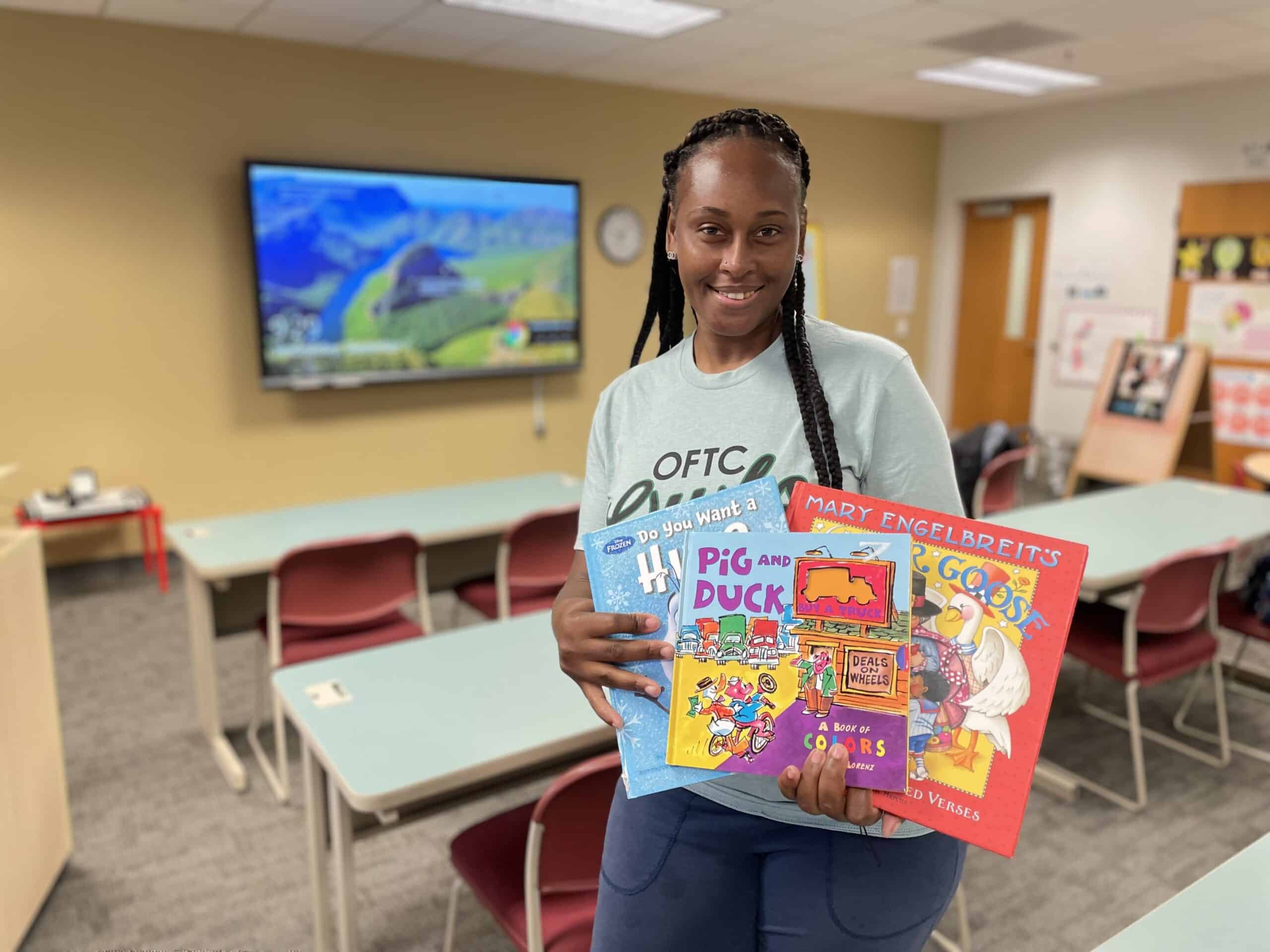
“I’m confident that I'll be prepared for a successful career in early childhood care and education. My advisors are very knowledgeable and are always providing helpful resources to help me advance my learning. The hands-on learning opportunities and experiences have given me opportunities to learn about the course by actually doing the things we learn; it's given me a chance to see the type of work I’ll actually be doing once I'm in the classroom.”
